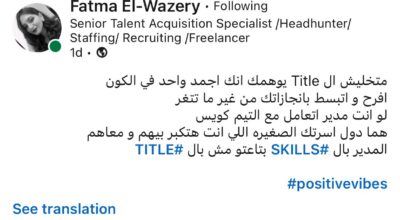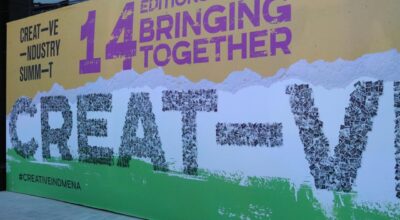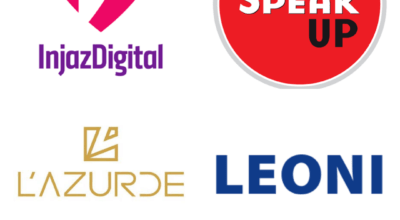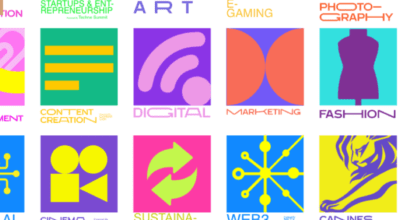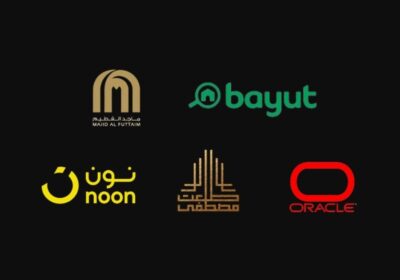Figuring out what decisions to make throughout our educational journey in order to have a successful and fulfilling career is tough. Feeling confused and lost is normal. We’re in the midst of an ongoing economic downturn partly imposed on us by the novel coronavirus pandemic. To top that off, there is what psychologists call, the ‘the paradox of choice’; which is the inability to choose due to the presence of seemingly endless choices. And it goes without saying there are seemingly endless careers and fields of study to choose from. That’s why we talked to these four successful Egyptians, who come from diverse backgrounds, to help you bring some resolve to these matters through navigating their stories as they journeyed from school to university and into promising careers.
Scroll down and read through what Mohamed Shelbaya, CEO and chairman of PepsiCo Egypt; Sherine Abdel Moneim, marketing director and executive board member at Unilever; Farida Salem, founder and director of Empower Football Academy; and Abdelhameed Sharara, CEO and founder of RiseUp have to say on this subject.
“The mandatory hard work and the demanding nature of my school in specific gave me a baseline of what to expect going forward and prepared me for what I know now is a dog-eat-dog world.” — Mohamed Shelbaya, CEO and Chairman of PepsiCo Egypt
1. Mohamed Shelbaya, CEO and Chairman of PepsiCo Egypt
The CEO and chairman of PepsiCo Egypt, Mohamed Shelbaya, majored in Economics at the American University in Cairo. What is behind his impressively successful work-life? How did his fervor for basketball impact it? What advice does he have for up-and-coming professionals? That’s what we attempted to find out…
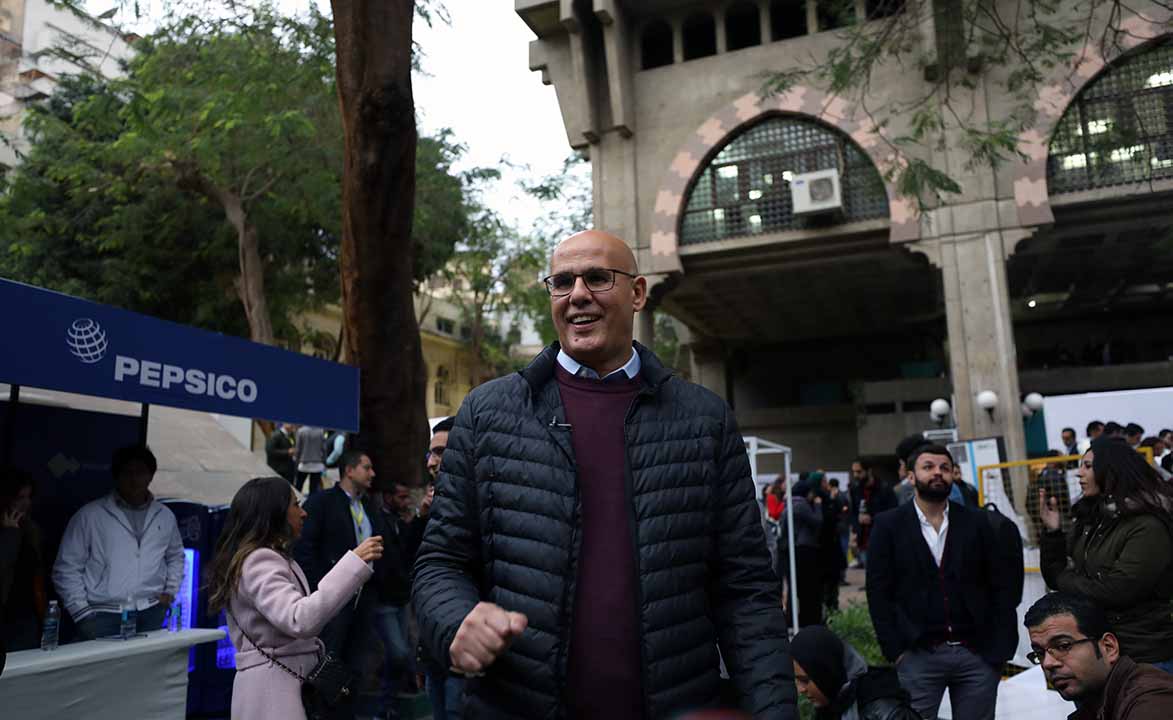
Photo via StartupScene.me
What Was He Like as a Student?
“Having grown up in Norway and England and then spending my high school years in Egypt, I can confidently say I was very well rounded culturally. Moving from place to place was hard especially when you feel like a fish out of water,” said Shelbaya, remembering the downside of this transition.
But there was also an upside to it. He elaborated, “It instilled a lot of skills that carried me through my high school career and later on in life. As a high school student, I was ambitious, hardworking, dedicated, and strong-willed. I was very proactive within the school community through sports teams and due to my sociable nature. I was a very outgoing social student, not only with my classmates but also, with teachers.”
Finally, and quite interestingly, he believes his journey through secondary education was what gave him a pathway that highlighted what he needs to do in order to stay on top. “The mandatory hard work and the demanding nature of my school in specific gave me a baseline of what to expect going forward, and prepared me for what I know now is a dog-eat-dog world.”
Although it might not seem relevant to his managerial career, Shelbaya chose to graduate with a bachelor’s degree in Economics. But Shelbaya believes that, while studying economics wasn’t his first choice, it was integral to his success today.
To What Extent Do Grades Matter?
“Looking in retrospect, I personally do not believe a single letter or number dictates who you are and where you stand in the world,” he prefaced the answer. He admitted, however, that being graded helped him in one specific way; it gave him that extra push to do better than he thought possible.
“It was always a good standpoint to see where you are and where you can improve,” he elaborated. “My grades — although not the best — did push me. They, however, did not interfere with my progress to get to where I am at today.”
According to Shelbaya, to work at a top-notch corporation like PepsiCo, “it is not about only one specific element or achievement, but more of a package deal that comes with it.” He then added that “having good grades solely is not enough.”
What Else Matters
“The real and most impactful factors that matter in the long run would be the sports teams, social circles, connections, and relationships you make within the high school experience. The collective involvement with the community is what helped me — in the long run — to grow into who I am today mentally, physically, and socially,” asserted Shelbaya.
Regarding sports teams, Shelbaya was a passionate basketball player. A former member of the Egyptian National Team of the Gezira Sporting Club, Shelbaya told us that basketball helped him learn more about himself and others in many different ways.
Through basketball, Shelbaya believes, he learned how to win and lose properly. It also allowed him to travel the world, expand his horizons and — subsequently — grow more accepting and understanding of different people and cultures. And being on the national team made him feel dedicated to serve his country and contribute to making it better. “Basketball shaped me into a very well rounded, dedicated, passionate professional.”
If He Could Go Back in Time…
He explained, “Economics, although not my first option, helped me with the career I have today both directly and indirectly. I was always interested in the business aspect of the world and the industries that it thrives in. Studying economics helped me gain a full toolbox of skills, approaches, and ways of thinking that I could apply to a wide range of problems. Economics paired with the general business experience I’ve had was a perfect recipe for success and understanding in the business playing field.”
We also asked Shelbaya on whether he’d want to change how it all went if he could go back in time. He said, “If I could go back in time, I would focus on the more general aspect of business while simultaneously focusing on entrepreneurial management as this is more adaptable and would’ve been more helpful in my career today.”
It’s worth noting now that, led by Shelbaya, PepsiCo Egypt has helped support a lot of entrepreneurs forward through numerous events, platforms, and hackathons.
His Advice to Students
- Stay strong, work hard, and believe in yourself. Thinking you are average or basic will not get you far.
- Get involved, with anything and everything. Build connections, establish relationships, get on sports teams.
- Venture out and try new things that can build you up into being the best you can and make you well-rounded.
- Explore new fields and become familiar with the advancements in the technological world we are living in today. This is a major component to the upcoming workforce environment.
- Use your free time wisely and intern to gain working experience and knowledge.
“What helped me in my job are rather my leadership skills and high competencies, which is also what we look for when hiring new talents.” — Sherine Abdel Moneim, Marketing Director and Executive Board Member at Unilever
2. Sherine Abdel Moneim, Marketing Director and Executive Board Member at Unilever
Sherine Abdel Moneim’s promising career started with experiencing different specialties in the business world before she settled on the one she decided was the best for her. Although now she is a marketing director at none other than Unilever, during college, she majored in accounting. Here’s how it happened, why and what we could learn from her journey…
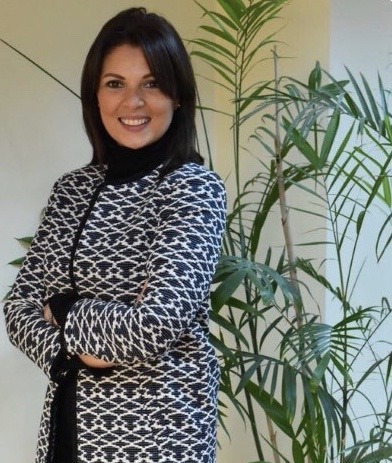
Photo via Sherine Abdel Moneim
What Was She Like as a Student?
During her secondary education, Abdel Moneim recalls herself as a ” high-performer”. But she also thinks that “we have lots of inspiring stories and icons who taught us that, if you didn’t find your path of success, create your own.” The inspiring stories of Oprah Winfrey, Walt Disney, and Bill Gates exemplify this notion in her opinion.
“There is the great Walt Disney, who was fired from his job because his editor thought that he lacked imagination. The same goes for Bill Gates and Oprah Winfrey who failed miserably but then went on to become great icons in their own fields,” she illustrated.
To What Extent Do Grades Matter?
Although a high-performer at school herself, Abdel Moneim believes that grades might not be linked at all to how successful you could become in the future. “This is not a call to fail at high school,” she clarified. But she believes that “you might have a talent that could set you for real success in the future.”
“Great success comes after deep failures, for me, failure is one round of learning that paves the way to great successes to come,” she added.
What Else Matters
“What helped me in my job are rather my leadership skills and high competencies, which is also what we look for when hiring new talents.” she asserted. In Abdel Moneim’s view, a student planning for their work-life should prepare themselves for exploration, pursue their passions and talents, and “take control of their destiny.”
“The only person responsible for your development is yourself. We need to take control of our destiny and to ‘up-skill’ ourselves in order to become and remain future-fit. This is not related to a certain period of your life, your learning is an ongoing, enjoyable journey. Every day should add to you becoming a better version of yourself,” she said.
If She Could Go Back in Time…
Abdel Moneim tried out different career paths before deciding to pursue marketing. Her original intention during college was to pursue a career in finance, and hence she chose accounting as her major at university. Nearing the end of her bachelor’s degree, however, she started doubting that choice, because from what she’s learned on her summer internships and work placements, life as a banker or an accountant was going to be too theoretical for her. “I wanted to look at business in all its dimensions, not just in terms of the figures,” she explained.
“After graduating, I decided instead to take a job in sales. I knew absolutely nothing about how a sales function worked, or even about the kind of challenges I might find there. I simply saw it as an opportunity to gain real-world business exposure and to experience something completely new.” recalled Abdel Moneim.
Her main takeaway from this experience is; “Although I opted for a career in neither finance nor sales, these early experiments helped me identify my passions.” Subsequently, she doesn’t see them as a waste of time. She then emphasized, “As a young person, one of the biggest assets you have is time. Explore. Experiment. Make every second count.”
Her Advice to Students
- Use your time wisely, as a young person, one of the biggest assets you have is time.
- Dare to experiment, you will never know where your passion is until you try things out.
- Explore while you can, and the more experience you can gain from different markets and continents, the better equipped you will be for the kind of cross-cultural working at multinational companies.
You can read more elaboration on her advice here.
“Eat well, sleep well, and play sports!” — Abdelhameed Sharara, CEO and Founder of RiseUp.
3. Abdelhameed Sharara, CEO and Founder of Riseup
Back in 2013, Abdelhameed Sharara realized there was a gap in Egypt’s startup ecosystem, he saw a room for a platform whose primary goal is to connect startups to the most relevant resources. And this observation gradually gave birth to RiseUp. On an annual basis, the RiseUp summit gathers the different parties of Egypt’s startup ecosystem in what feels like a whirlwind of educational sessions, competitions, discussions, and networking parties. Prior to kicking off the summit, he had a bachelor’s in law alongside a decent career in training and development.
In light of the novel coronavirus pandemic, the entity responded with a special event titled. ‘RiseUp From Home‘. We asked Sharara to give us a tour of his experience and the advice to students that could spring from it.
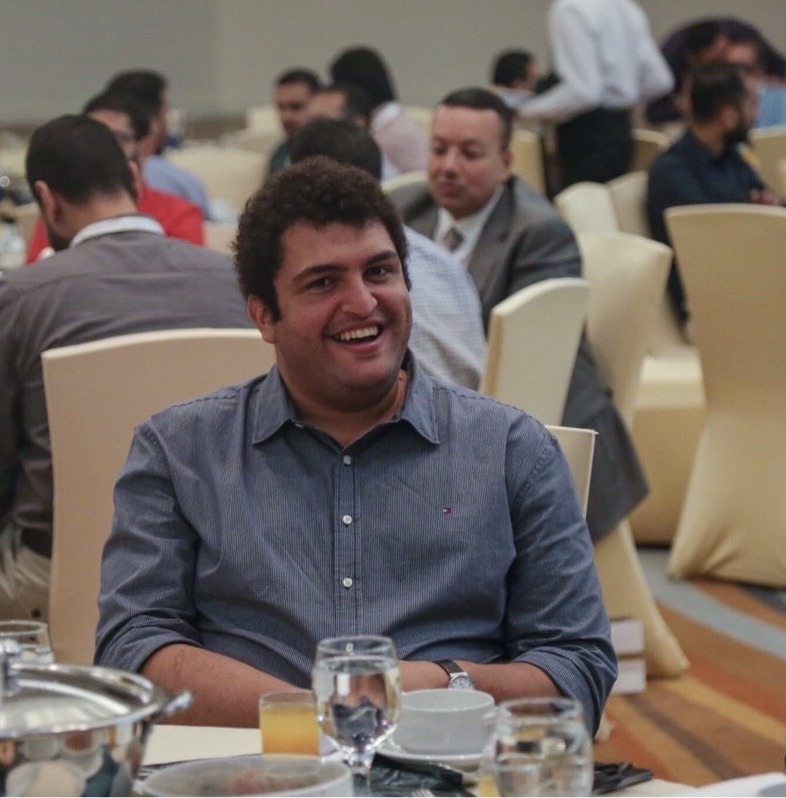
Photo via Abdelhameed Sharara
What Was He Like as a Student?
As a student, Sharara was quite active, but more so outside the class than within it. Arguably, his entrepreneurial spirit had already started glimmering. “I did a lot of sports, a recycling project for all beverage cans in school, organized trips, and organized the school prom.”
He admits, however, that “class was less exciting than extracurricular activities in general.” And he wasn’t always a straight-A’ student either.
To What Extent Do Grades Matter?
A law graduate from Ain Shams University, Sharara thinks that grades didn’t matter much. “I still scored a ‘very good’ score.” A lot of what he has learned, however, came by virtue of his adventurous explorations and undertakings outside the class and what he studied.
What Else Matters
Whether it’s the small recycling initiative he started, the couple of simulation models he launched, or the management of a small PlayStation café back in his days during university, Sharara was already becoming an entrepreneur long before he knew it.
In agreement with what Abdel Moneim believes, trying things out is key to figuring out what suits you best.
If He Could Go Back in Time…
Again, as is the case with Shelbaya and Abdel Moneim, one might not see a direct link between his brilliant career and what he studied. But Sharara said, “I think law school taught me more about life than about how to be a lawyer, which really helped me in my business and impact career. Studying law is about learning how society and governance work, which pretty much reflects on business,” he clarified.
That’s why if he were to go back in time, “he would have actually gone for the same thing.” He added, however, “definitely some business and management study would have been helpful, but generally, my advice on that is — disregarding what you have studied — you’ll never really know your career and what suits you best unless you try it out.”
His Advice to Students
- Eat well, sleep well, and play sports!
- If you have any chance to do something out of school, then do it! A trip, an internship, a project, or whatever you can find. This will really add a lot of value.
- You’ll never really know your career and what suits you best unless you try it out,
“Some people might think, ‘This is not a profession or a major that is respectable in our community. It’s very unorthodox and whatnot.’ But I don’t believe in that, because I think whatever you love and what you believe in, that’s what you should be doing.” — Farida Salem, Founder and Director of Empower Football Academy
4. Farida Salem, Founder, and Director of Empower Football Academy
Farida Salem‘s daringly ventured into founding and directing a football academy for women in Egypt, Empower. She is very grateful towards her education and the efforts she put within her studies and believes that they got her to where she’s at today. Read on to learn more!

What Was She Like as a Student?
“As a high school student, I was always striving to succeed and be a straight-A student. But I was only able to achieve that in university,” said Salem. That outlook didn’t change to this day, even though she switched majors mid-university and founded Empower Football Academy.
To What Extent Do Grades Matter?
As for grades, Salem said, “I definitely think it was an indicator of my success and what I like to do in my life.” Her preferred subjects were the ones she would always excel at and later pursue further in higher education.
“I do believe that my education and grades mattered in the long run because they’re the exact reason why I’m here today with everything that I have,” elaborated Salem. As a student-athlete, she said, “They care about your grades more than your athletics. If someone’s failing or not doing very well, they’re not allowed to compete.”
What Else Matters
Salem believes that patience and choosing the next best thing instead of giving up because you couldn’t find your first preference helped her achieve her dreams. “I wanted to study sports health and physical education, or something similar like kinesiology and sports science [at university], but I wasn’t able to,” she recalled.
“I picked the second best thing that I liked and went ahead with what I chose, then the door opened for me to travel to Canada, switch majors and pursue what I love.”
She further added, “Some people might think, ‘This is not a profession or a major that is respectable in our community. It’s very unorthodox and whatnot.’ But I don’t believe in that, because I think whatever you love and what you believe in, that’s what you should be doing.”
If She Could Go Back in Time…
“If I could go back in time, I would not change my majors and minors, because I’ve learned a lot from each of them,” she stated.
Her Advice to Students
- Be patient, nothing in university or in this part of life happens the way you want it to happen.
- Work on your personal and professional development through courses and certifications.
- Just say yes to everything, and you never know where the opportunity may come from.
Now It’s Your Turn To Tell Us What You Think…
Which of these experiences did you relate to the most? Do you have a completely different experience that would entail a whole different approach to a successful work-life? Which of these pieces of advice ring true to you the most?
Let us continue this discussion through the comments section!

